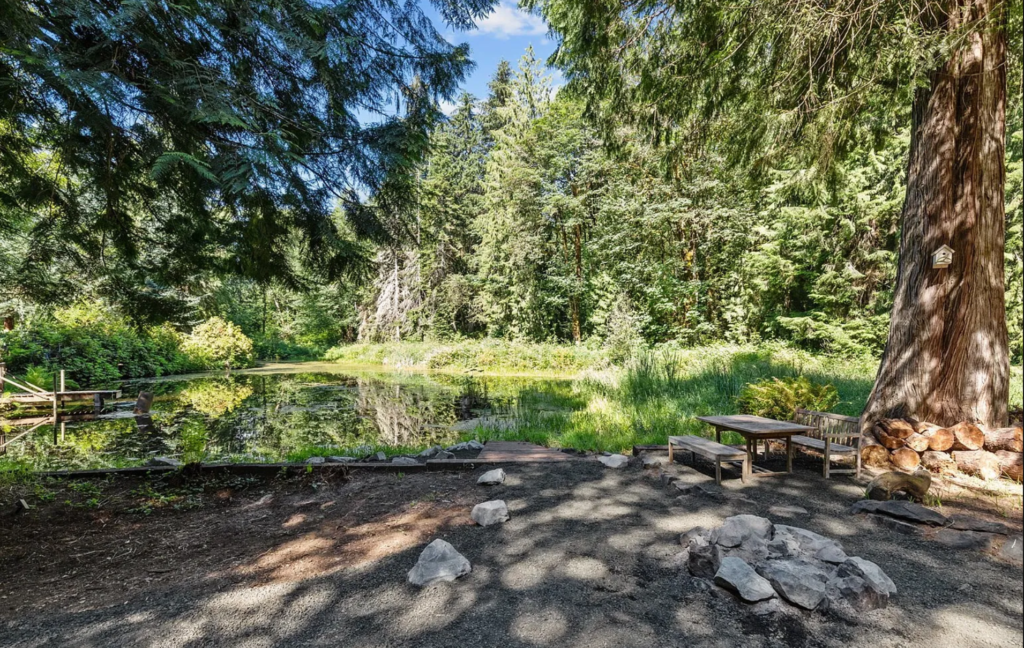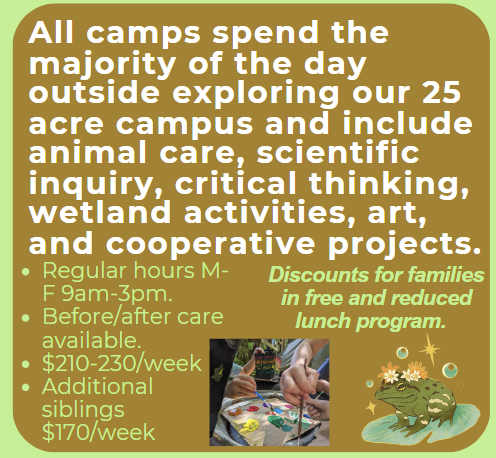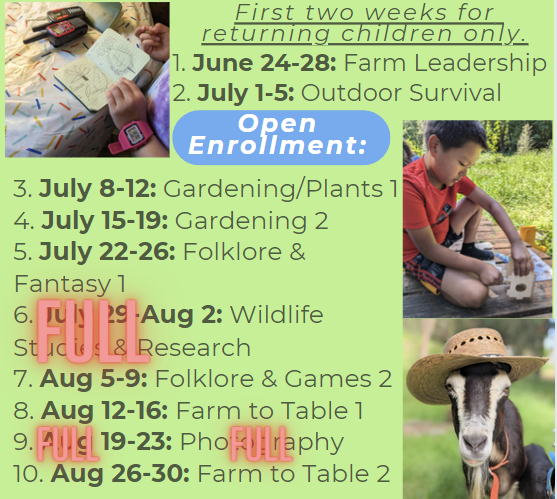
** PLEASE NOTE: Week 6: July 29 – Wildlife Studies and Week 9: Aug 19 – Photography are now full. No additional registrations purchased after March 1 submitted for those weeks will be accepted.**
More specifics on themes coming soon…


Outdoor Farm Camp is Always Science Education!
Outdoor and farm experiences can be an excellent way to provide science education to children. Here are some of the ways in which these experiences can support science learning:
- Observation and Inquiry: Outdoor and farm experiences provide children with the opportunity to observe and interact with the natural world. This can help them develop an inquiry-based approach to science learning, as they ask questions and seek answers about the plants, animals, and ecosystems they encounter.
- Hands-on Experiences: Science education is often most effective when it is hands-on and experiential. Outdoor and farm experiences provide children with opportunities to engage in activities such as gardening, animal care, and nature walks, which can help them learn about science concepts in a meaningful way.
- Environmental Awareness: Outdoor and farm experiences can help children develop an awareness of environmental issues and the ways in which humans impact the natural world. This can lead to a deeper understanding of concepts such as sustainability, ecology, and climate change.
- Integration of STEM: Science education is often integrated with technology, engineering, and math (STEM) concepts. Outdoor and farm experiences can provide children with opportunities to engage in activities such as building structures, designing irrigation systems, or conducting soil analysis, which can help them develop skills in these areas.
- Connecting Classroom Learning: Outdoor and farm experiences can also help children connect what they learned during the school year in the traditional classroom with real-world situations. For example, a lesson on photosynthesis in the classroom can be reinforced and expanded upon through hands-on gardening activities in a farm setting.
Overall, outdoor and farm experiences can be an effective way to support science education by providing children with hands-on learning opportunities, encouraging inquiry-based learning, fostering environmental awareness, integrating STEM concepts, and connecting classroom learning with real-world situations.